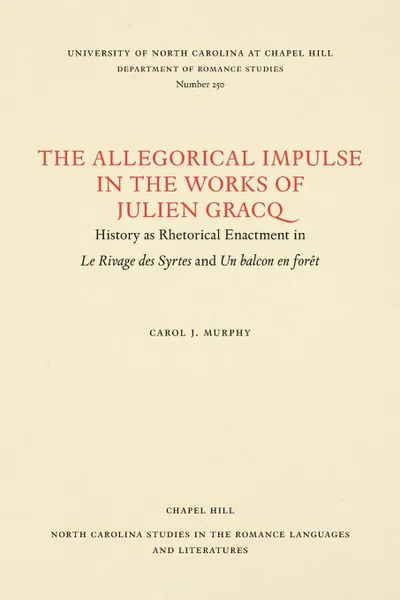The Allegorical Impulse in the Works of Julien Gracq. History as Rhetorical Enactment in Le Rivage des Syrtes and Un Balcon en Foret 14+
Автор: Carol J. Murphy
204 страницы
Категория: Литература на иностранных языках
ISBN: 9780807892541
Язык: Английский
📙 The first extensive study in English of Julien Gracq's work, this bookfocuses on the role of history in his two major novels and his criticalessays. Carol Murphy draws on contemporary theories of allegory, textuality, and history in her analysis of the interplay of fictional and factualhistory in Gracq's writings. She also shows that history's rhetoricaldimension, as presented by Gracq, puts forth the hypothesis that narrativesof history influence actual events. In addition, she uses Freudian theory toinvestigate the links between Walter Benjamin's understanding of history as ruin, Gracq's sense of catastrophic history, and Andre Breton's notion ofthe "emotional coefficient" of history.
Мнения
